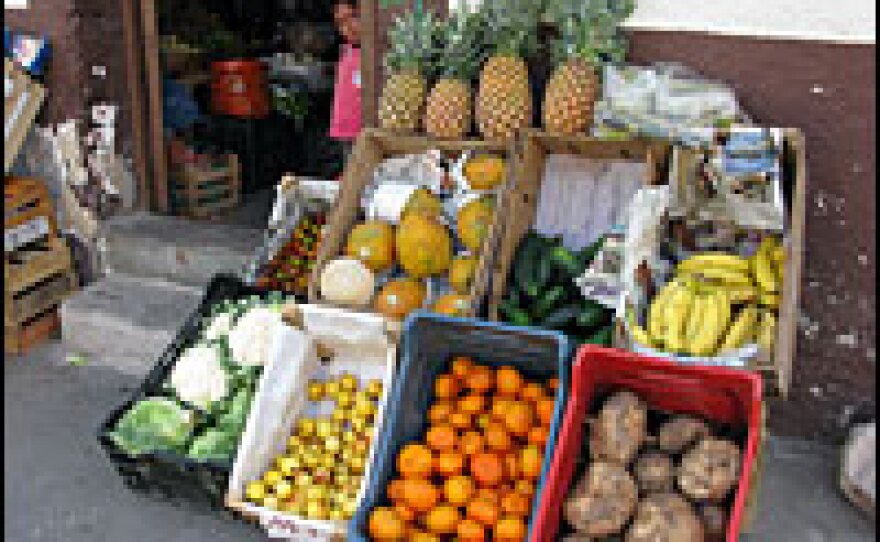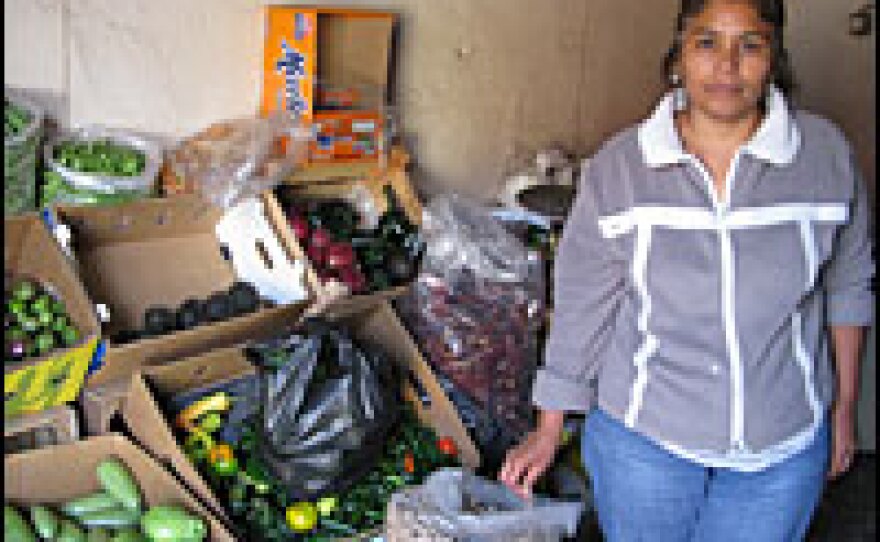

Mexicans working in the U.S. are being hit hard by the economic slowdown, and that is hurting their homeland.
Remittances are Mexico's second-largest source of foreign currency after oil exports, and the Mexican central bank reports these funds are drying up rapidly. In addition, hundreds of thousands of Mexicans are expected to return home in the coming months to villages with few job prospects.
In Tarimbaro, a small village in the Mexican state of Michoacan, Aldo Cuevas spray-paints a car on the street. Cuevas went to Minnesota to do construction work as a young man. He says he had a good life there — his four kids were born in St. Paul and he eventually became a citizen. But three months ago, the entire family moved back to Mexico.
"I lost my job and I don't make enough money to survive," he says.
Cuevas says in St. Paul, between what his wife earned and his wages, they were making about $1,000 a week. But when he lost his job, they could no longer pay the rent. So now he's fixing up old cars and trying to resell them. He says it's tough to make a living in Mexico.
"If you work for somebody, you're just going to make like 150 pesos, and my spending every day is like 300 pesos," Cuevas says. "So where am I going to get the other 150 from?"
The peso has been fluctuating wildly lately, but the typical wage of 150 pesos equals about $12 to $15 a day.
Cuevas says the good thing about Mexico is that he doesn't have to pay rent because his family has a house there.
Feeling The Effects Of The U.S. Economy
For decades, young men and women left Tarimbaro's cobblestone plaza dominated by fruit vendors and a Spanish colonial cathedral for Chicago, Los Angeles and Houston.
At a small shop selling vegetables around the corner from Cuevas' house, Maria Josali Palmina Martinez says the entire village is being hurt by the economic downturn north of the border. Her husband was working on construction sites in Florida, but when that dried up he moved to San Antonio to look for work. She said he had been supporting her and their four children.
"He was sending me a $1,000 or $1,500 each month," she says. "And now the reality is that he sends $300 a month, or at the most $600."
The local butcher says that people in Tarimbaro are buying a lot less meat because they can't afford it. Palmina says for her family of five even beans, on their current budget, are expensive.
Remittances Expected To Drop Even More
Antonio Garcia Conejo, who chairs the migration committee of the Michoacan state legislature, says even more changes are coming in the near future. Remittances are expected to continue to drop.
Even if just 10 percent of the Michoacan migrants decide that for them the American dream is over, this could mean an influx of hundreds of thousands of people to one of Mexico's poorest states. And Garcia acknowledges that there are no jobs waiting for them here.
"No, there's no work," he says. "There are some serious complications. This is a reality."
And some officials expect that reverse migration could be even larger — perhaps millions of people, rather than just hundreds of thousands.
Garcia says most of the migrants came from rural parts of Michoacan, and the state is going to try to reintegrate them into agriculture.
"For a minimum, we have to guarantee for the people who get back at least that they'll have something to eat," he says. "If they're not going to have any income, at least they'll have food. And thus we have to focus on agricultural production."
The congressman adds, however, that this could be a great opportunity for Michoacan. He points out that the migrants are some of Michoacan's most ambitious citizens. He says the challenge is going to be — with shrinking resources — to direct their skills and ambition to rebuild this impoverished Mexican state.
Copyright 2022 NPR. To see more, visit https://www.npr.org. 9(MDAzMjM2NDYzMDEyMzc1Njk5NjAxNzY3OQ001))







